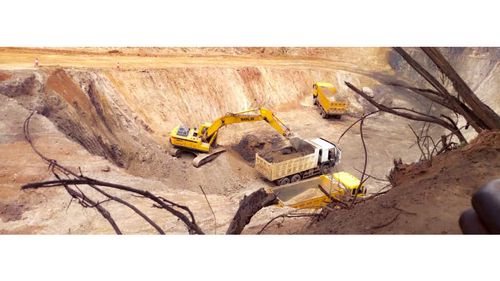By Editor
Zambia’s Mines Safety Department (MSD) has always been able to get itself out of a tight spot – avoiding by all means any media scrutiny for its alleged poor policing record.
The department, under the Ministry of Mines and Development is responsible for safety and health of mining industry employees and mineral processing in line with the provisions of the Mines and Minerals Development Act.
Some of the department’s responsibilities includes, “the protection of human health, in consultation with the Minister responsible for health”.
The MSD is also responsible for carrying out inspections, mining safety audits and risk assessments in mines.
MakanDay prepared a set of questions, including what action has been taken to prevent injuries and deaths at a Chinese-owned mine in north-western Zambia, the department chose to redirect the request to the parent ministry.
A month-long investigation by MakanDay, with support from the Information Development Trust (IDT), a non-profit organisation supporting journalists to probe corruption and bad governance in Southern Africa, outlined alleged rampant abuse of workers by Chinese owned small scale copper miners in north-western Zambia.
On 01 April 2022, MakanDay wrote to the director of mines in Ndola on the Copperbelt, requesting for comment on the accidents at Jifumpa, but to this day no response has been provided.
Typical of dodgy public departments, it took Fred Banda – the director a month to reply, directing that the request be channeled through the office of the Permanent Secretory in the Ministry of Mines in Lusaka. Neither the ministry nor the department has replied to MakanDay’s second letter of 19 May 2022.
When MSD failed to respond, MakanDay checked its record through past studies and interviews with key people who have direct knowledge of the department.
The MSD is supposed to ensure compliance with health and safety regulations.
But the 2011 Human Rights Watch report found that, “because it (department) is understaffed, underfunded, and facing allegations of corruption—it provides little effective regulation of mining companies”.
“Nothing much has changed,” said a mine workers unionist. “Many of us doubt the ability of the Mines Safety Department as an effective regulator.”
These challenges highlight a major problem in the country’s mining sector and reveal challenges facing the new government to make mining safe for both investors and the workers. President Hakainde Hichilema has placed mining at the centre of his government’s economic growth strategy, by increasing copper production to three million metric tonnes in the next ten years.
Human Rights Watch provided a number of recommendations, including ensuring that the department has sufficient staff to effectively fulfill its mandate to monitor safety and health conditions in the mining industry. At the time, only 13 of 28 inspector positions were filled.
Other recommendations were the need to improve the staffing and equipment of the department so that it can better carry out its monitoring role and increase the fines that are imposed against mining operations that violate safety regulations or labour laws to ensure they have a deterrent effect.
Furthermore, government was asked to ensure that safety inspectors perform proactive, unscheduled inspections—rather than respond only to reported accidents—to enforce safety regulations and better prevent future accidents.
These recommendations were made in 2011, but more than a decade on, the situation has remained the same as pointed out by a mine safety expert.
“The department should be able to investigate accidents and perform other duties without requiring financial and material assistance from the copper mining companies it is tasked to monitor,” he said. “That is one of the major weaknesses of the MSD, relying for financial support from companies they police.”

Discover more from MAKANDAY
Subscribe to get the latest posts sent to your email.



